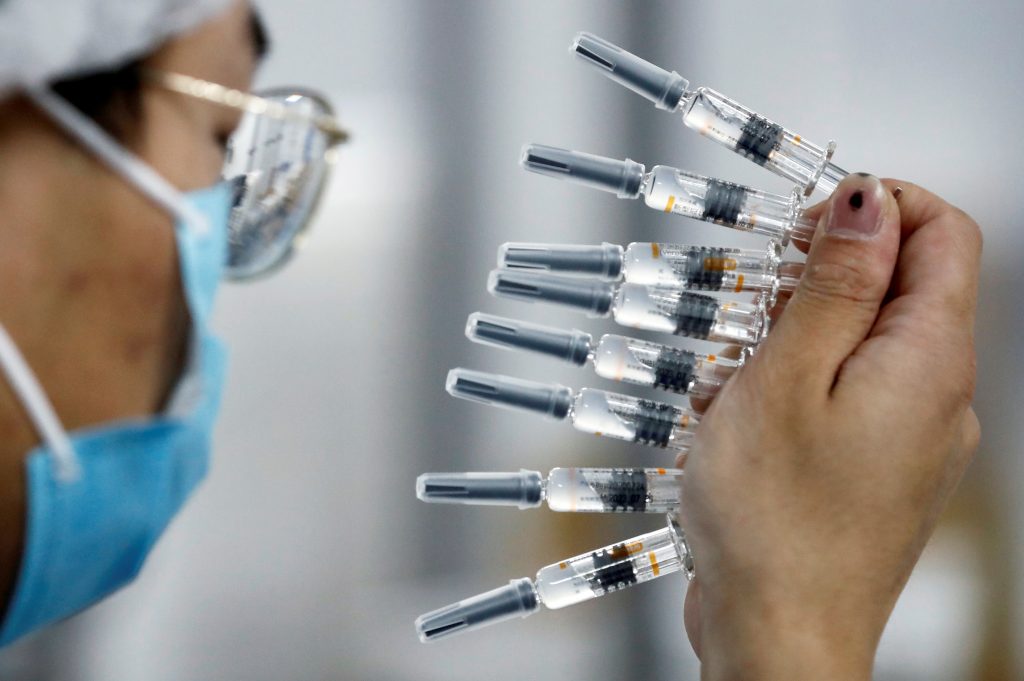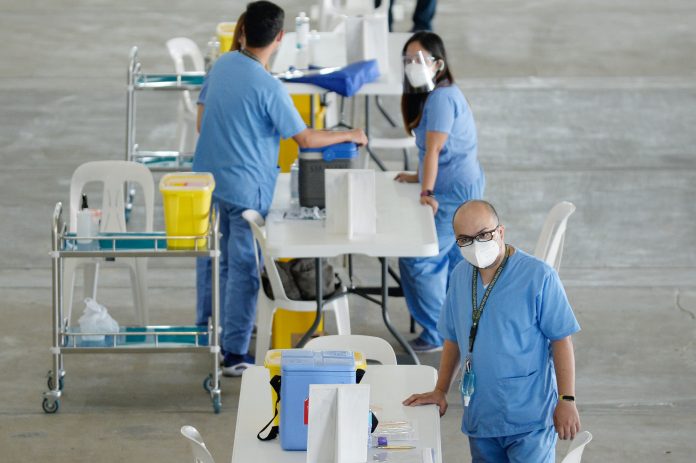An alliance of health and humanitarian organizations in Asia called on G-7 leaders this week to stop blocking the proposal to waive intellectual property rights for COVID-19 vaccines.
“Millions of Asians urgently need developed countries to stop blocking their access to vaccines,” read a statement from the Peoples Vaccine Alliance-Asia on Tuesday, June 8.
The group noted that across Asia, a surge in coronavirus cases is prompting fresh restrictions and pushing people further into poverty.
While fast-moving vaccination drives are allowing developed economies to bounce back, most Asian countries have managed to vaccinate less than 10 percent of their populations, said the group.
The alliance made the call the WTO TRIPS Council meets for talks this week.
The sharp rise in coronavirus cases in many parts of Asia is prompting restrictions, factory closures and lockdowns.
In May, South Asian countries such as India, Nepal and Pakistan saw a catastrophic surge in cases, while in Southeast Asia, Malaysia saw per capita cases soar past India and total cases in Thailand, Vietnam, Cambodia, Laos and East Timor have more than doubled in the past month.
Governments in these countries are attempting to scale up vaccination programs, but lack of supplies means Asian countries are far from reaching their targets.
In total, less than seven percent of Asians have received at least one dose of the vaccine.
Countries such as Pakistan, where less than three percent, and Vietnam, where not even two percent have received a jab, lag far behind the G-7 countries such the United States and United Kingdom where over 50 percent of adults have been vaccinated.

Calculations from the People’s Vaccine Alliance found that last month people in developed countries were 77 times more likely to be offered a vaccine than those living in the world’s poorest countries.
In May, G-7 countries were vaccinating people at a rate of 4.6 million people a day, meaning, if this rate continues, everyone living in G7 nations should be fully vaccinated by Jan. 8, 2022.
At the current rate – vaccinating 63,000 people a day – it would take low income countries 57 years to reach the same level of protection.
Some G-7 countries claim to have done their bit by pledging doses or funding to the COVAX initiative, set up to help developing countries access COVID vaccines.
But COVAX is failing massively and has delivered less than a third of the doses it promised to by the end of May.
“Asians can no longer wait for, or rely on the goodwill of countries promising to donate their excess vaccines,” read the Peoples Vaccine Alliance-Asia statement.
The group called on G-7 leaders “to stop protecting interests of pharmaceutical companies in their countries and support the proposal at the WTO to waive intellectual property rights for vaccines, diagnostic, therapeutic and medical supplies and equipment.”
The Peoples Vaccine Alliance Asia includes ActionAid, Oxfam, GCAP-Asia, SAAPE, APCASO, APMDD, APN and Africa-Japan Forum, among others.
“It is essential that leaders of the G-7 countries back the TRIPS waiver at the WTO to ensure mass manufacturing of the coronavirus vaccine across the world,” said the group.









